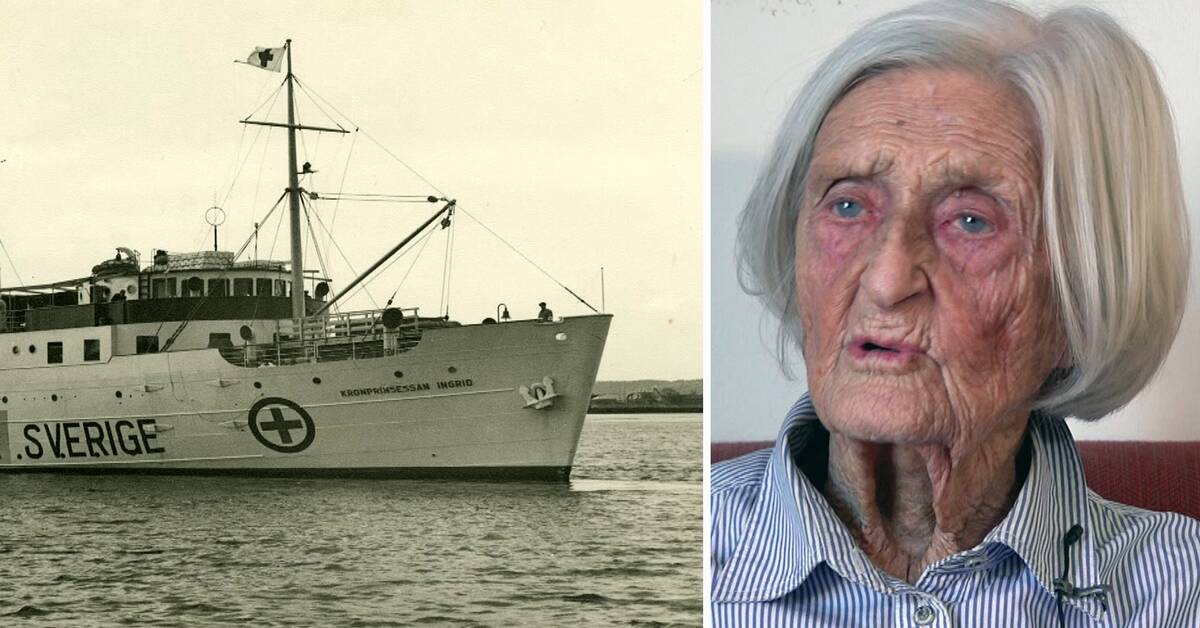The rescue operation with the "White Boats" was coordinated by Sweden and the refugee agency UNRRA in collaboration with the Red Cross.
The goal was to retrieve seriously ill refugees who survived the concentration camps in Germany.
Kerstin Ehrenberg was then 23 years old and worked as a Samaritan at sea on one of the boats.
- It was not really the intention that I should go with but it was a coincidence, I studied to be a chemist and had completely different plans.
Difficult assessments on site
Only those who were judged to be able to complete the voyage across the Baltic Sea were allowed to accompany the boats, but they too were seriously ill and malnourished.
- It was terrible, all these half-dead people, says Kerstin.
Admitted to a hospital in Gothenburg
Once in Sweden, the refugees were admitted to hospitals in Gothenburg, among other places.
The idea was that they would return to Germany, but few of them had anything to return to.
- Many remained and created new lives here.
I have also had contact with some afterwards, a man even contacted me and wanted me to be a wedding witness when he got married.
Both good and difficult memories
The rescue operation lasted for a month in the summer of 1945. Most of those picked up were women and children whose parents died in the camps.
What do you remember from this time?
- It is mostly pictures that flicker past about how difficult it was for those we downloaded.
But at the same time also the nice contact we got during the trip, says Kerstin.
Would a similar refugee evacuation be possible in today's world politics? The researcher explains in the clip below.
Javascript is disabled
Javascript must be turned on to play video
Read more about browser support
The browser is not supported
SVT does not support playback in your browser.
We therefore recommend that you switch to a different browser.
Read more about browser support
Researcher Joachim Åhman on the possibilities for Sweden to receive war refugees in Ukraine.
Photo: SVT / TT

